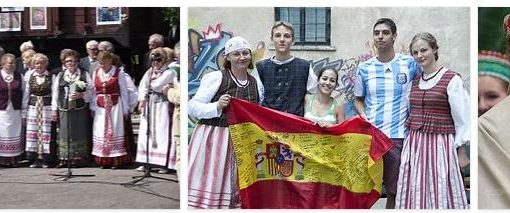Cinema. – Consistent with the growing international diffusion of the thriller in the literary field, it is in the corresponding genre of cinema and television consumption that the Swedish audiovisual industry has found commercial success, resorting to the adaptation of successful books: the works of Liza Markulund, Åsa Larsson, Lars Kepler have been adapted for cinema, the first book of the so-called Stockholm trilogy by Jens Lapidus, Snabba cash (2006; trans. It. The trajectory of the snow, 2009), is the basis of the film of the same name (2010) by Daniel Espinosa, and the mysteries of Camilla Läckberg, Håkan Nesser, Arne Dahl and Leif GW Persson are translated into films for television. For Sweden 2016, please check softwareleverage.org.
Major hits of the genre, Stieg Larsson’s Millennium trilogy (2005-07) and Henning Mankell’s books dedicated to Commissioner Kurt Wallander (published since 1991) have produced sprawling adaptation strategies, letting theatrical films, series and miniseries descend. and finding global remakes in English: The girl with the dragon tatoo (2011; Millennium – Men who hate women), by David Fincher, reformulates Män som hatar kvinnor (2005; trans. it. Men who hate women, 2007 ), while Mankell bases his Wallander books (since 2008) on the Swedish film series of the same name (2005-ongoing). Arn (2007-08), a medieval setting saga based on Jan Guillou, the most expensive production in Swedish audiovisual history, followed the same strategy of expansion from film to television. The resigned despair of the detective genre, the antiromanticism of its heroes, the ineffective sadism of the crimes staged, the brain game exasperated to the point of delirium are the topoi of a shared vision of the world, between terrible moral apocalypses and rebirths which at the singular. A poetics of anomie, margin and relational disease that can be read as a reflection in films outside the genre, as in the psychopathological detoursof Jesper Gans landt (Apan, 2009). But also a fragility of relationships, which can be found in the family disruptions of Detaljer (2009) by Kristian Petri, in the directorial debut of actress Pernilla August Svinalängorna (2010, known as Beyond), and also in the comedy, as demonstrated by Masjävlar (2004; Love is never enough) by Maria Blom. A need for escape (real, sentimental and ideological) that underpins all of Lukas Moodysson’s discontinuous filmography (Ett hål i mitt hjärta, 2004, A hole in my heart) and inspires coming-of-age stories such as Fredrik Edfeldt’s Flickan (2009), Man tänker sitt (2009, Becoming a lair) by Henrik Hellström and Fredrik Wenzel or the horrifying adolescence of the tender and fatalist Låt den rätte komma in (2008; Let Me In) by the eclectic Tomas Alfredson. A moral degradation that is continually detected and denounced by the cinema of Ruben Östlund (Play, 2011), a sadistic and humanist critical bench, stretched between the surreal sketch by Roy Andersson and the terrorist paradoxes of Michael Haneke. And while Jan Troell, between fiction and documentary, continues to tell the Sweden with counter-stories out of bourgeois minimalism (Maria Larssons eviga ögonblick, 2008, The eternal moment by Maria Larssons) and Liv Ullmann inherits the magisterium of Ingmar Bergman, adapting August Strindberg in Miss Julie (2014), the cinema of the most influential contemporary director in Sweden, Roy Andersson, is recognized with the Golden Lion in Venice for En duva satt på en grenoch funderade på tillvaron (2014; A pigeon sitting on a branch reflects on existence), the closing of a trilogy “on being a human being” that encloses humanity in paintings between Otto Dix and Pietr Bruegel, narrating the tragicomic nonsense of life at the time of the crisis in a subtle reflection on the new slavery and on the privilege of humorist. Josef Fares (Jalla! Jalla!, 2000), heavy and paradoxical, is the most successful popular comic figure.
Of note, in the context of animated cinema, the dystopian Metropia (2009) by Tariq Saleh, a work of global instinct (dubbed by prominent actors) and, in the documentary field, the systematic work of Göran Olsson on colonialism and xenophobia, based on archival material from Swedish TV (Concerning violence, 2014, based on texts by Frantz Fanon).




